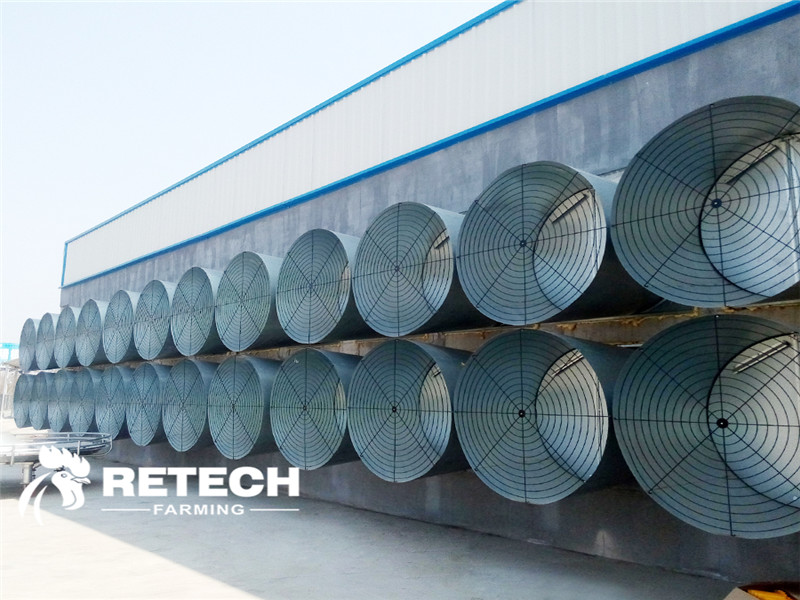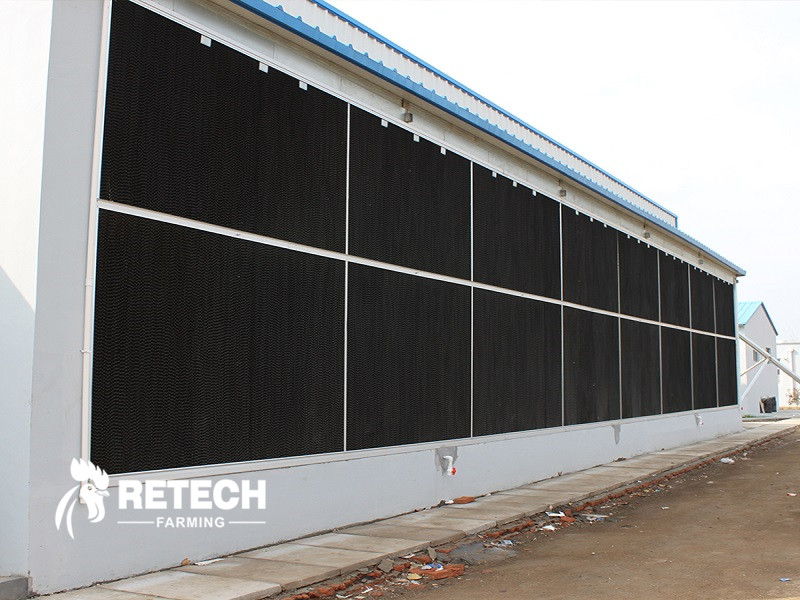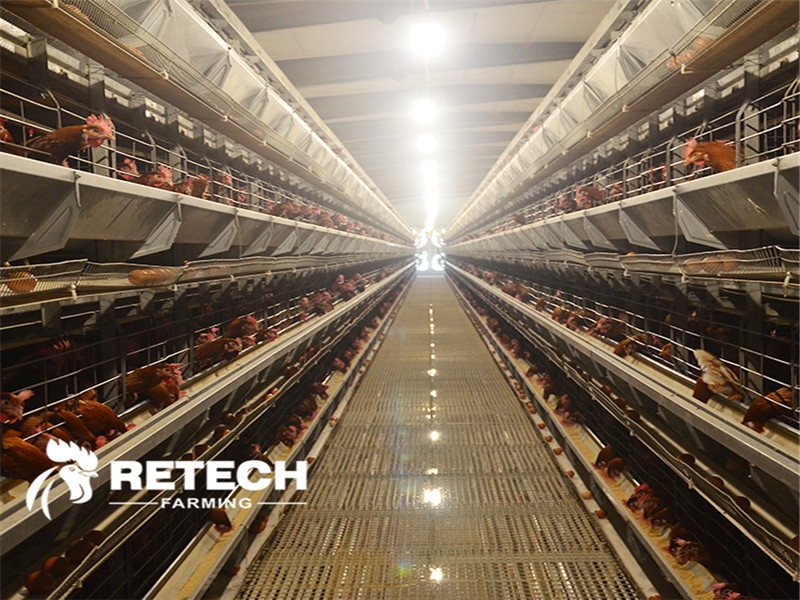Close search
 Published :
/
Published :
/ Posted by : Retech
Posted by : RetechBirds have higher body temperature and no sweat glands. When the ambient temperature exceeds 26.6 ℃, the older poultry will breathe to dissipate heat. In the hot summer, if there is no good heatstroke prevention measures, not only the growth is slow, but some may also die of heatstroke, which seriously affects the production efficiency.
You can refer to the following method:
1. Special attention should be paid to the impact of the first heat wave. The sudden high temperature will cause serious losses to poultry due to the sudden heat stroke.
2. Reduce the stocking density and expand the group in time.
3. Enhance the thermal insulation ability of the roof, set up sunscreens on the upper part and both sides of the roof of the poultry house to avoid direct sunlight and reduce the entry of solar radiant heat.
4. Enabling ventilation equipment, fans and wet curtains, the retech environmental control system helps you monitor the temperature in the chicken house, making it more convenient for you to manage the chicken house.

5. Change the drinking water frequently to ensure that the poultry drink clean and cool drinking water.
6. Flushing the roof and northwest wall of the poultry house at high temperature can reduce the radiant heat entering the poultry house. When the ambient temperature exceeds 30 ℃, spray water several times in the house, and the mist droplets should be fine and uniform.

7. For those raised on the net or in cages, the manure should be cleaned on time every day, and the ground should be kept dry;
If the ground is flat, turn the litter frequently to remove the agglomeration, and replace some of the litter if necessary.
8. Oil and amino acids are used in the feed to form a high-energy and high-amino acid full-price feed that is easy to digest and utilize, which can reduce the generation of body heat.

9. Adding multi-dimensional electrolytes, especially vitamin C, vitamin E, and 0.2%-0.5% NaHCO3, etc., can improve the heat stress resistance of poultry.
10. In hot weather, there is very little feeding at noon, and the feeding amount should be increased in the morning and at night; in extreme high temperature, in order to reduce heatstroke death, the feeding should be stopped from 6:00 in the morning, and only cool drinking water should be provided. This reduces body heat production at high temperatures and reduces mortality.
11. Reduce all kinds of stress of poultry during high temperature period, and change the work of manure cleaning and immunization to the cool time in the early morning.